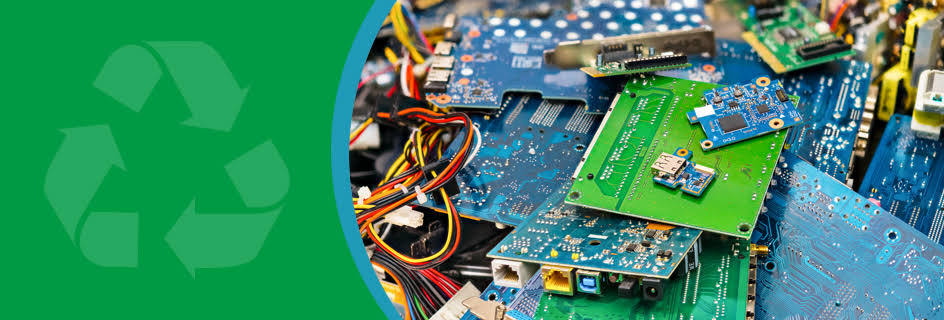Most computer equipment has a relatively short lifespan. The amount of toxic components that are generated when they end up in landfills are a direct source of contamination of land and water.
It is necessary to have a clear methodology of recycling equipment and its sustainable treatment.
What are WEEE or electronic waste?
Informally referred to as e-waste or electronic waste by the acronym WEEE (Waste Electrical Electronic Equipment). The WEEE designation includes all electrical and electronic devices that approach the end of their "useful life" and become waste, considering all those components and sub-assemblies that are part of the product at the time it is discarded. Many of these products can be reused, restored or recycled.
It is estimated that about 75 percent of old electronic devices are stored in homes and offices taking up space (in closets, drawers, entire rooms), inconvenient and generating a waste of resources. This happens, in part, due to the uncertainty of not knowing how to handle these materials.
WEEE are ordered, from the point of view of production, marketing and consumption, in different "lines" of devices: white line, brown line and gray line.
While the recycling of electronic waste is a lucrative business, many countries lack both specific regulations and business initiatives, and are left to the informal sector, which exposes thousands of recyclers to serious health risks.
Regarding current regulations, at the international level, reference should be made to the Basel Convention on the Control of Transboundary Movements of Hazardous Wastes and their Disposal of 1989 and to the European Directive 2002/96 / EC which is one of the first special rules on the treatment of waste electrical and electronic equipment.
The application of extended producer responsibility requires the producer to respect quality standards and assume responsibility for the impact of the product at the end of its life cycle.
When the computer equipment we work with ceases to work or is useful, we have several options to get rid of it. The most common (unfortunately) is to deposit it discreetly in the nearest container, when not leaving it directly on the street. There are, however, two alternatives that are much more ecological and friendly than the first, recycling and donation.
When the computer equipment we work with ceases to work or is useful, we have several options to get rid of it. The most common (unfortunately) is to deposit it discreetly in the nearest container, when not leaving it directly on the street. There are, however, two alternatives that are much more ecological and friendly than the first, recycling and donation.
Lead, selenium, cadmium, mercury and others, are harmful elements for our health, not to mention the environment and the impact of not only the type of waste, but its quantity.
If you have waste material, do not hesitate to contact the municipality of your municipality to ask if they offer this service.

